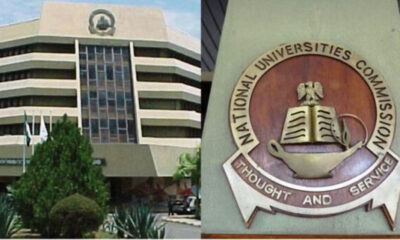Education
Just in: FG makes U-turn, sets 16 as minimum age for tertiary institution admission
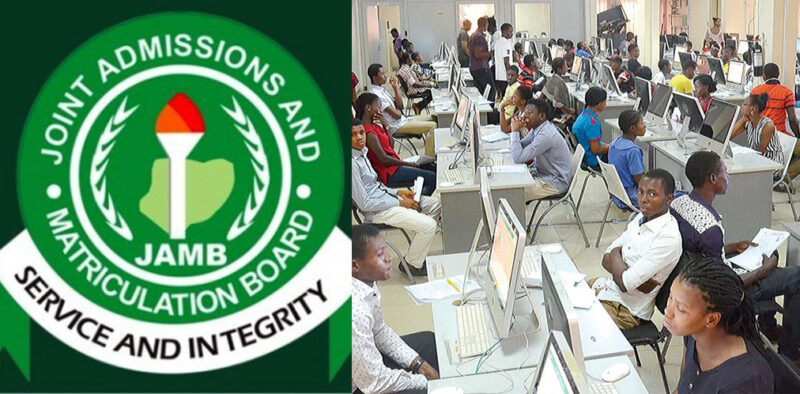
Just in: FG makes U-turn, sets 16 as minimum age for tertiary institution admission
Education Minister Prof Tahir Mamman has reversed himself where he directed the Joint Admissions and Matriculation Board (JAMB) to admit only candidates who have attained 18 years into tertiary institutions.
Mamman on Thursday, in an ongoing policy meeting organised by JAMB, in Abuja, announced that only applicants who were 18 years and above were eligible for admission.
Stakeholders in the meeting kicked against this, noting that it was illogical for a 16-year-old student to pass WAEC, JAMB and be denied admission.
Reacting to that, the minister later accepted the suggestions of the stakeholders that from 16 years and above should be eligible for this year’s admission, while the law would apply from next year.
JAMB cut-off mark
Meanwhile, the Joint Admissions and Matriculation Board, JAMB, has approved 140 as the cut-off mark for 2024 admission into the nation’s universities and 100 for polytechnics and colleges of education respectively.
READ ALSO:
- BREAKING: FG fixes admission age to Nigerian universities, others at 18
- Paris 2024: Super Falcons lose to Canada in friendly match
- Modric signs one-year extension with Real Madrid
The National Minimum Tolerable UTME Score (NTMUS), popularly known as the cut-off mark, for 2024 admission into tertiary institutions was arrived at on Thursday during the 2024 annual policy meeting on admissions, which was held at the Body Benchers, Headquarters, Abuja.
The meeting was held following the successful conduct of the 2024 Unified Tertiary Matriculation Examination (UTME). A total of 1,989,668 registered candidates for this year’s UTME.
Out of the 1,989,668 registered candidates, 80,810 were absent while a total of 1,904,189 sat for the UTME within the six days of the examination.
The policy meeting was chaired by the Minister of Education, Professor Tahir Mamman, and decided following recommendations by the heads of institutions.
Registrar of JAMB Registrar, Is-haq Oloyede, who announced the cutoff marks, explained that individual institutions were at liberty to raise their minimum benchmark approved at the policy meeting but could not go below what was approved for various institutions.
Just in: FG makes U-turn, sets 16 as minimum age for tertiary institution admission
Education
FG to pay corps members backlog of delayed N77,000 allowance

FG to pay corps members backlog of delayed N77,000 allowance
The Federal Government has promised to pay the backlog of the new ₦77,000 monthly allowance to members of the National Youth Service Corps (NYSC).
The corps members’ allowance was increased from ₦33,000 to ₦77, 000 in September 2024.
However, the new rate has yet to be implemented.
Minister of Youth Development, Ayodele Olawande, on Monday said serving corps members and those in the scheme when the increment was announced in September 2024 would receive a backdated payment.
He gave the assurance when he was featured on Channels Television’s Politics Today.
He said, “You saw the new DG saying that you will get it, and they’re asking him a question ‘What about those that are going out now, are they going to receive it [backlog]?’ He said ‘We have your details’,” the minister said.
“The backlog, we will work on it and make sure it is paid. It may not be immediate but it will happen.”
Education
Why postgraduate students are ineligible for FG loan – NELFUND
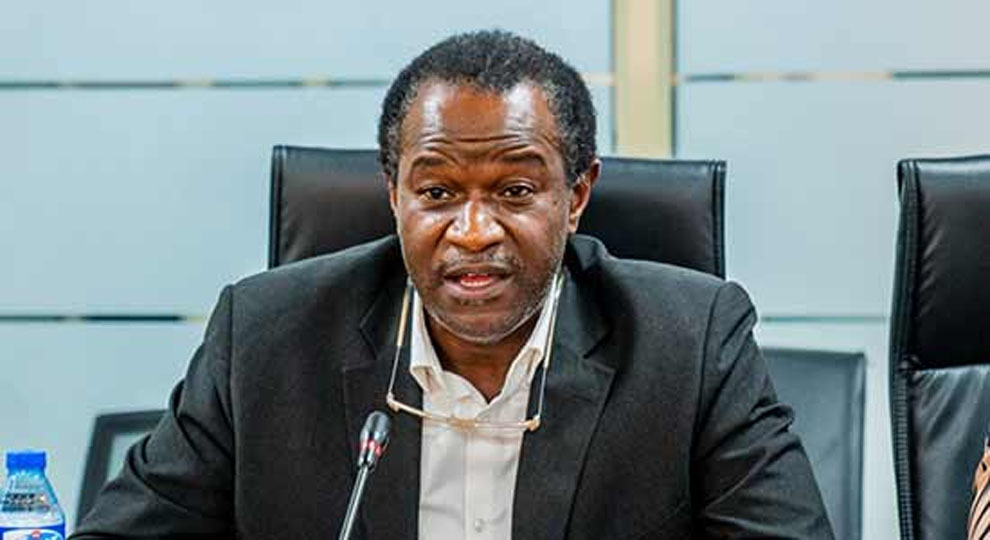
Why postgraduate students are ineligible for FG loan – NELFUND
The Nigerian Education Loan Fund (NELFUND) has clarified the eligibility criteria for the scheme, explaining why students pursuing post-graduate programmes are not qualified to apply for the facility.
Managing Director of the Fund, Akintunde Sawyerr, gave the revelation while speaking on TVC’s Breakfast Saturday.
Sawyerr also addressed concerns regarding postgraduate students’ eligibility for the loan, explaining that the facility is currently only available to students pursuing their first degree.
“The way the President has set this up and the way he has insisted that this must work is that you don’t need to know anybody to access this loan. And that’s what we are doing. No connections, no long leg, no man-know-man. We are not going to allow it to happen. The President wants us to completely democratize education.”
Although repayments have not yet been received, the Managing Director assured that the Fund is developing a robust repayment structure to facilitate timely and effective loan repayments.
He said currently, postgraduate students are not eligible to apply for the loan, as the primary focus is on supporting students pursuing their first degree.
Future plans for postgraduate students
Sawyerr, however, offered a glimmer of hope for postgraduate students, indicating that they may be eligible for the loan facility in the future.
“Post-graduate students can’t apply for this loan. We have a lot of people in this country who are just trying to get on the first rung of the ladder as far as tertiary education is concerned. The funds we have are focused on those people who are looking for their first opportunity.
READ ALSO:
- Bitcoin rises above $86,000 as crypto market gains momentum
- 2 Nigerians in US face heavy jail term over fraud
- Canada denies 13,000 Nigerians refugee status
“I congratulate those who have graduated who are doing their Master’s or PhDs, it’s fantastic. At some point in the future, we will be able to fund them. Today, we are looking for those who need us most. They are the people we want to support.”
He emphasized that while plans exist to extend financial support to postgraduate students, the immediate priority remains assisting undergraduates who face financial difficulties.
The Fund is committed to ensuring that students do not drop out of tertiary institutions due to lack of funds, and future adjustments to the loan scheme will be considered based on available resources and policy direction.
Over 271,000 students enrolled
According to the Managing Director, revealed that more than 271,000 Nigerian students pursuing tertiary education have received a financial lifeline through the Federal Government’s Student Loan program since its launch in May 2024.
“Nigerian students are reacting extremely positively to the initiative. And as more disbursements happen, they are becoming more trusting. One of the interesting things going on at the moment is that President Bola Tinubu is restoring trust in the government. The students are receiving it well. We are transparent about what we are doing.
“In total, to date, we have about 271,000 Nigerian students who have either had their fees paid or their fees plus upkeep,” he noted.
As of Saturday, March 22, out of 521,000 students who have registered for the loan facility, approximately 438,000 have submitted their applications.
Why postgraduate students are ineligible for FG loan – NELFUND
Education
FG approves NYSC mobilisation for all full-time HND graduates

FG approves NYSC mobilisation for all full-time HND graduates
The Federal Government has approved the mobilisation of all full-time Higher National Diploma (HND) graduates for the National Youth Service Corps (NYSC), ending years of exclusion from the scheme.
Minister of Education, Dr. Tunji Alausa, announced the decision on Thursday in Abuja, stating that only graduates of full-time HND programs would be eligible for mobilisation. The policy shift follows consultations with the Director-General of the NYSC and is aimed at promoting fairness in the education sector.
“The Federal Ministry of Education remains committed to equity, fairness, and inclusivity in Nigeria’s education system,” Alausa said in a statement released by the ministry’s Director of Press and Public Relations, Folasade Boriowo.
READ ALSO:
- More trouble brews in Rivers as Ijaw congress considers self-determination option
- Obi, Bala Mohammed ticket can defeat Tinubu – South-South Alliance
- Another truck explodes in Abuja, 10 killed, 30 injured
To ensure smooth implementation, the National Board for Technical Education (NBTE) has been directed to compile data on eligible HND graduates. A circular has also been issued to polytechnic rectors, instructing them to upload the necessary graduate records to a newly established HND admission portal, which will serve as the official database for NYSC mobilisation.
However, the minister clarified that part-time HND graduates remain ineligible for the scheme.
“This decision applies strictly to those who completed a full-time HND programme,” Alausa reiterated.
He urged all qualified graduates to take advantage of the opportunity and begin their mobilisation process immediately.
The move is expected to address long-standing concerns among polytechnic graduates and enhance their participation in national development through the NYSC scheme.
FG approves NYSC mobilisation for all full-time HND graduates
-

 metro3 days ago
metro3 days agoNatasha: Court blocks recall attempt, stops INEC
-

 metro1 day ago
metro1 day agoCourt refers Ojukwu property case to alternative dispute resolution
-

 Entertainment2 days ago
Entertainment2 days agoSome ladies in movie industry ready to sleep their way to fame — Jide Kosoko
-

 metro2 days ago
metro2 days agoPresidency blasts Jonathan, Soyinka over comments on emergency rule in Rivers
-

 metro3 days ago
metro3 days agoOluwo accuses Ooni of plotting to dethrone him
-

 metro3 days ago
metro3 days agoBoko Haram attacks military base in Adamawa
-
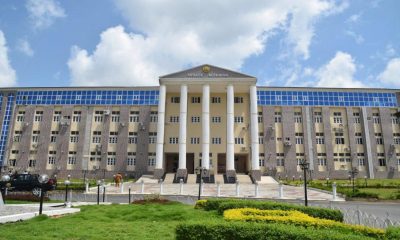
 metro2 days ago
metro2 days agoAdeleke University didn’t suspend Muslims for praying – MSSN
-
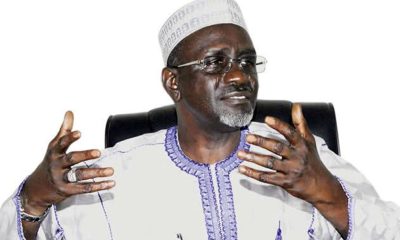
 Politics2 days ago
Politics2 days agoAtiku, Obi, El-Rufai’s coalition can’t unseat Tinubu – Shekarau



